Jaroslav Pelikan
The Need for Creeds
The idea of reciting an unchanging creed sounds suspicious to modern ears. But the late, great historian Jaroslav Pelikan illuminated ancient tradition in order to enliven faith in the present and the future. He insisted that strong statements of belief will be necessary if pluralism in the 21st century is to thrive. We take in his moving, provocative perspective on our enduring need for creeds.
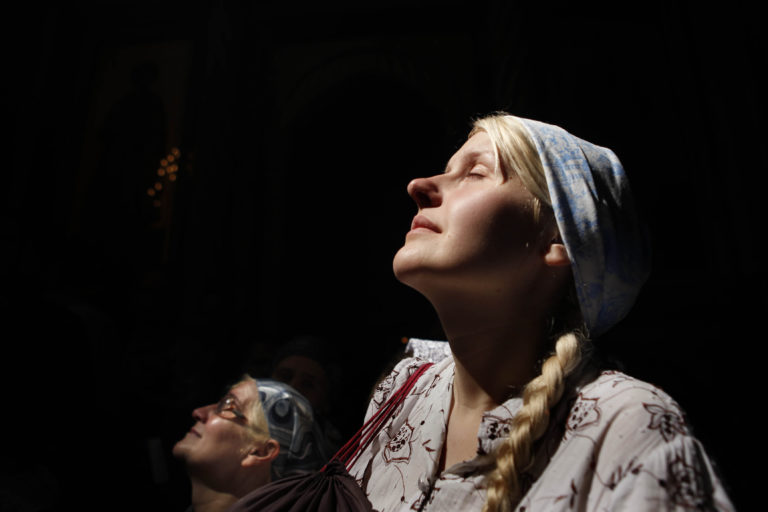
Image by Gali Tibbon/Getty Images, © All Rights Reserved.
Guest
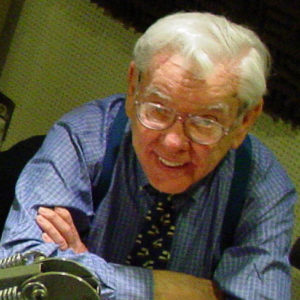
Jaroslav Pelikan
Transcript
April 23, 2014
JAROSLAV PELIKAN: My faith life, like that of everyone else, fluctuates. There are ups and downs and hot spots and cold spots and boredom and ennui and all the rest can be there. And so I’m not asked on a Sunday morning, ‘As of 9:20, what do you believe?’ And then you sit down with a three-by-five index card saying, ‘Now let’s see. What do I believe today?’ No, that’s not what they’re asking me. They’re asking me, ‘Are you a member of a community which now, for a millennium and a half, has said, we believe in one God?’
[Music: “Seven League Boots” by Zoe Keating]
KRISTA TIPPETT, HOST: The late great historian Jaroslav Pelikan knew that the very idea of reciting an unchanging creed was troublesome for modern people. He had a gift, which we remember this hour, of clarifying the past for the sake of the present and the future. He even insisted that strong statements of belief will be necessary if 21st Century pluralism is to thrive.
Pelikan was one of those people relatively unknown in the wider culture, but a living legend in his world of accomplishment. And my conversation with him is cited by listeners from an astonishing range of belief and non-belief as one of their favorites. I met him in 2003 — the first year of this show. He had just compiled a historic collection of creeds from biblical times to the present and from across the globe.
I’m Krista Tippett, and this is On Being.
[Music: “Seven League Boots” by Zoe Keating]
MS. TIPPETT: Jaroslav Pelikan was a professor of history at Yale University for over four decades and a president of the American Academy of Arts and Sciences. Among his many books, he wrote five epic volumes, the defining work of the 20th century, on Christian tradition.
The formulas we know as the creeds of the Christian Church were hundreds of years in the making, driven into being more by argument than by agreement. In the intellectual and religious ferment of the Greco-Roman world, various theologies and interpretations of the Gospel competed for credibility. The creeds were deemed necessary to codify the basic truths of this rapidly developing new religion. The Apostles’ Creed, which is used principally at baptisms, answered the challenge of Gnosticism, which denied that Jesus was fully human. The Nicene Creed responded to the heresy of Arianism, which denied that Jesus was fully divine.
Jaroslav Pelikan was passionate when we spoke in his 80th year, often pounding the table in excitement as he made his point.
MS. TIPPETT: So let’s just start with some really basic questions. I mean, I have an M. Div. from Yale and, uh, and I remember being very surprised about thinking about creeds differently through that. But it’s been a few years and I think some of the questions that came back to me that I think might on, you know, listeners’ minds are, you know, do all traditions have creeds? All Christian traditions. Um, and how do they tend to be used? I mean, let’s say, uh, as an Episcopalian, which I am now, they are part of the liturgy. But is that — is that how they are always used by different traditions? I don’t think it is. And how are they meant to be used by ordinary people? So that’s a big place to start.
DR. PELIKAN: First of all, it is one of the differences between Christianity and the other major world religions, that Christianity has spawned many creeds as this set shows, thousands of…
MS. TIPPETT: Right.
DR. PELIKAN: Of pages of creeds.
MS. TIPPETT: How many creeds have you collected?
DR. PELIKAN: Well we collected nearly a thousand of them and cut it down to, I forget what the final box score is on that. Uh, somewhere around 200.
MS. TIPPETT: Mm-hmm.
DR. PELIKAN: See, whereas to be Jewish is to affirm every day, if you’re observant, and with your dying breath, if you can hear, O Israel, the Lord is our God. The Lord is one. The Shamah. And that’s really all the creed that Israel needs. So it’s been possible to be Jewish now for these 3000 or whatever years without publishing four volumes of creedal text. There is no God, but Allah and Mohammed is his prophet…
MS. TIPPETT: Right. Muslim also…
DR. PELIKAN: Is enough of a creed to uh, animate the most rapid expansion of a religion in the history of humanity from the death of the prophet in 632 to 732 in Gaal at the battle of Toor. Islam managed to spread from the Arabian Peninsula south and all the way across the northern coast of Africa to Gibraltar and into Spain and on into France in 100 years.
MS. TIPPETT: OK.
DR. PELIKAN: With this one little creed, and Christianity sprouts them at will right and left.
MS. TIPPETT: So what is it about Christianity that has needed creeds?
DR. PELIKAN: Well, what it is about religious faith that needs creed is that religious faith in general, prayer addressed “To Whom It May Concern,” sentiment about some transcendent dimension otherwise undefined, does not have any staying power. It’s OK to have that at 10:00 on a Sunday morning when you’re out with your friends somewhere, but in the darkest hours of life, you’ve got to believe something specific. And that specification is the task of the creed, because, much as some people may not like it, to believe one thing is also to disbelieve another. To say yes is also to say no. And clarifying what the yes is and then finding a way to say what it is we believe and the experimentation involved in that, I’ve made a very good living studying the experimentation, trying — how they tried on particular words for size. There are words in the Bible, important words, which didn’t get into the creeds. You see…
MS. TIPPETT: Like what? I mean…
DR. PELIKAN: Like the designation of Christ as logos. Logos means both “word” and “reason,” as in logic. And the gospel of John begins with the words that many people know: “In the beginning was the Word, and the Word was with God and the Word was God, and the Word was made flesh and dwelt among us.” And it was, in many ways, one of the most important terms in the arguments about the identity of Christ during the third and fourth centuries, and yet, in the only creed that all Christians or almost all Christians have in common, the so-called Nicene Creed, the term doesn’t appear.
MS. TIPPETT: And why was that?
DR. PELIKAN: They wanted rather to make use of terms that would clarify simultaneously the distinction between God and His Son, that when I say I believe in Jesus Christ, I am not saying I believe in two gods. The doctrine of the Trinity was the effort to preserve monotheism. The real Unitarians were the Trinitarians.
MS. TIPPETT: And for some in those arguments, the logos image seemed to truly present Christ as another entity…
DR. PELIKAN: That’s right.
MS. TIPPETT: …separate from God.
DR. PELIKAN: As a subordinate and, therefore, in the nature of His being, different.
MS. TIPPETT: But I think, let’s say, for modern Christians, when you say that logos is Christ as reason and logic, that might be something appealing that was left out of the creeds that would help if it were in them.
DR. PELIKAN: Well, sure. Of course, subsequently, the term logos is used very often in various creedal statements, statements that are intended to clarify, amplify, specify this or that out of the Nicene Creed. So it’s not that the term was discarded, but that, in that particular creedal statement, it doesn’t appear.
MS. TIPPETT: There was just a passage in your manuscript where you said there’s this question that’s raised in the New Testament, which gets raised again and again. It’s a question that Jesus asked: Who do you say…
DR. PELIKAN: What think ye…
MS. TIPPETT: …that I am? Who do you say I am?
DR. PELIKAN: Who do you say I am? Yeah.
MS. TIPPETT: And that that question is asked again and again in every new tradition in every different culture. That actually is so simple but that really made sense to me, that that’s an important question.
DR. PELIKAN: And that’s the difference between Jesus and Socrates.
MS. TIPPETT: Say some more.
DR. PELIKAN: I mean, all of us are, in one sense or another, pupils of Socrates. John Stewart Mill said humanity cannot be reminded often enough that there was once a man named Socrates, and that’s right. But there are no temples built to Socrates. Nobody ever wrote the “B Minor Mass” in honor of Socrates, because he calls upon people to learn and therefore to be honest with themselves, but he does not call upon them to take up their cross and follow. And both he and Jesus died for what they believed. But Jesus died in the conscious commitment to the salvation of the world.
And so wherever the message is preached and brought in whatever language it comes from, the language it comes to and the culture into which it penetrates must, at some stage of its maturation, learn to answer yet again the question: “Who do you say that I am?” Because the “you say” in that question is the culture in which we live. He’s not asking, “Who does the fourth century say that I am?” when it was writing in Greek. That’s important, because without that we wouldn’t be where we are. But, at some point, you have to be who and what you are in the only culture in which you’re ever going to live, the only century in which you’re going to live and die, and, in that century, you have to answer with whatever linguistic and philosophical equipment you have, you have to answer the question: “Who do you say that I am?”
I’m basically a historian rather than a contemporary theologian. I usually say that everybody’s an expert on his own century, and I file minority report on behalf of the preceding 19. And the history of the movement of Christianity from one place to another, of the translations of the Bible into now more than 2,000 languages is the history of how one sought, in a new setting, not to speak the same thing but to say the same thing. You spoke quite differently. And to test the integrity and, therefore, the honesty and, therefore, ultimately, the authenticity of what you’re saying, that’s the task of a creed.
MS. TIPPETT: I’m Krista Tippett and this is On Being. Today, the late historian Jaroslav Pelikan. He authored the definitive history of Christian doctrine, and his 2003 compilation of Christian creeds and confessions from across the globe was the first such effort since 1870.
[Music: “Credo” by Dom Ismaael Fernandez De La Cuesta, Chorus of Monks from the Abbey]
MS. TIPPETT: This, the Nicene Creed, is one of three ecumenical creeds and the only one accepted within Roman Catholic, Eastern Orthodox, and Protestant branches of Christianity. It was drawn up at the first global meeting of the Christian church in 325, the Council of Nicea, though, it was only solidified 56 years later at the Council of Constantinople. The Nicene Creed is often sung or chanted. It begins, “We believe in one God, the Father, the Almighty, maker of heaven and earth, of all that is, seen and unseen.
MS. TIPPETT: We do, let’s say in this country at least and I don’t know about in Africa, but in this country at least Christians of many churches do still often on Sunday morning or at least in — in their baptism, recite or have recited over them creeds that were written in the first few centuries of Christianity. Um, and I think, because they are recited and it’s rote and they’re memorized and yet modern people don’t have any sense of why these fourth century creeds were written and the, as you say, the experimentation that was going on and the lively, passionate argument that was going on, they don’t have as much meaning as they might. And so I’d like to sort of get into that with you, um, partly because as you said, you file a minority report on behalf of the last 1900 years. I — I want to say that for the show we — we speak in the first person. You know, I ask people the— there’s no abstraction about God. This is all with the integrity of a human life and a human mind behind it. But I think…
DR. PELIKAN: Uh, but when I speak…
MS. TIPPETT: When you speak in the first person, you — your friends, are you, CBS and Gregory Nazianzus?
DR. PELIKAN: Because I speak in first person plural.
MS. TIPPETT: Yes, you do. You do.
DR. PELIKAN: And — and the original text of the creed was not, I believe.
MS. TIPPETT: OK.
DR. PELIKAN: We believe.
MS. TIPPETT: Right. OK. So…
DR. PELIKAN: Pistevo men was the Greek.
MS. TIPPETT: Right. So there we are. Um, and so I thought maybe what would be fun would be to — to spend a moment with the Nicene Creed, which as you said is perhaps used by most…
DR. PELIKAN: It is. It’s the only universal creed.
MS. TIPPETT: It is. OK. And why is that? Why the Nicene Creed and not any of the others in those early years or that came later?
DR. PELIKAN: Well, there — you can answer that question on a number of levels. My father used to say the difference between a dialect and a language is that a language has an army. Uh, and — and a dialect is just spoken by people. And, so what we called the Nicene Creed, which is in fact adopted at the council of Constantinople in 381 rather than the council of Nicaea in 325.
MS. TIPPETT: Yes. Where is Nicaea, by the way? I couldn’t remember.
DR. PELIKAN: It’s in Turkey.
MS. TIPPETT: OK.
DR. PELIKAN: Iznik is its present, name, and of course, Constantinople of 381 is the present day Istanbul. Uh, but it was adopted at a council called and directed by the Christian emperor.
MS. TIPPETT: Newly converted Christian emperor.
DR. PELIKAN: The not-yet-baptized Christian emperor who was not baptized until his death and so all those years that he called himself, he — he said to the bishops of the church, “All of you are bishops and I too am a bishop. I am a bishop for the things outside the church and you are bishops for things inside the church.”
MS. TIPPETT: Oh, great.
DR. PELIKAN: But by the time he was done, he was, uh, he was running things.
MS. TIPPETT: Is that an early version of separation of church and state?
DR. PELIKAN: Uh, not of separation, uh, it was actually, the term that was invented for it much later by scholars, was Caesural papism. That is that Caesar the emperor is — is in fact the pope.
MS. TIPPETT: Wow.
DR. PELIKAN: Uh, but, uh, so at one level, the reason for the, uh, universal authority of, uh, the Niceno-Constantinopolitan Creed is the political and military authority it carried and each conquest by the Roman Empire also brought the creed. Uh, Constantine’s mother, St. Helen, came to Jerusalem and it was she who found the sepulcher of Christ and found the true cross and in the true cross were nails which she sent to Constantine and he had them melted down into a bit for his war horse. Onward Christian soldiers marching as to war. And as he marched and conquered, the creed came right with it. And so centuries later in the great modern expansion of Christianity, during the 18th and above all the 19th century, my late colleague Kevin Scott Areck at Yale, wrote a seven-volume history of the expansion of Christianity and three of the seven volumes are on the 19th century. Well, it’s not accidental, that’s also the great century of colonialism.
MS. TIPPETT: Hmm.
DR. PELIKAN: So the religion of the white man, which brought sanitation and, uh, money, economy and all the advantages and disadvantages of being modern, also brought the creeds.
MS. TIPPETT: Well, this is making me think that we should be banning this from modern worship.
DR. PELIKAN: Uh, and substituting another creed for it or no creed. It’s a plausible suggestion and indeed, you are in the tradition of a fairly substantial group, particularly in the United States as we celebrate the 200th anniversary of, uh, one of the greatest thinkers America produced, Ralph Waldo Emerson, for whom I have great personal affection. My mother who was born in, Serbia, learned English partly reading Emerson. I still have her copies of Emerson from her girlhood. And, uh, Emerson was a graduate of Harvard Divinity school and was a Unitarian minister. So he was quite prepared to believe that everyone should compose a creed different from the tradition. He said to the divinity school students at Harvard in 1838, “You must be yourself a newborn bard of the Holy Spirit and — and sing it out.” The trouble with that is, you do it and then you do it a little bit more and pretty soon you have to teach your children something and so the best you can do is to teach them what you have and do that a generation or two and all of a sudden, there you have…
MS. TIPPETT: A new creed.
DR. PELIKAN: A new creed.
MS. TIPPETT: All right. Well…
DR. PELIKAN: And the only alternative to tradition is bad tradition.
MS. TIPPETT: Tell me what you value when you say the Nicene Creed? I know you know the Nicene Creed, not just in English, but in many languages.
DR. PELIKAN: Partly because of what we’ve already talked about, namely that I, I’m very wrapped up in the whole history of the Church and particularly in the history of its teaching, so that, I cannot come at any question as though it had never been approached before.
MS. TIPPETT: OK.
DR. PELIKAN: Partly because of that, the singing of the creed is a very important and cherished way of indicating a universality of the faith across not only space, but time. To know that in the Philippines this morning this was the creed that was recited at mass and to know that the Emperor Justinian in the 6th century and Thomas Aquinas in the 13th, and my late father and grandfather all affirmed this.
MS. TIPPETT: Mm-hmm.
DR. PELIKAN: It’s ‘we’ all of us together. And in a more profound sense, that also forms an answer to your — to your question. My faith and my faith life, like that of everyone else, fluctuates. There are ups and downs and hot spots and cold spots and boredom and ennui and all the rest can be there. And so I’m not asked of a Sunday morning as of 9:20, what do you believe? And then you sit down with a 3×5 index card and say, “Now, let’s see. What do I believe today?” No, that’s not what they’re asking me. They’re asking me, “Are you a member of a community which now for millennium and a half has said, “We believe in one God.” And so that’s what I affirm when I sing it, and I suddenly — I know that the Bach B Minor mass is the great setting of this.
[Music: “Mass in B Minor” by Johann Sebastian Bach, John Eliot Gardiner, The English Baroque Soloists, Monteverdi Choir, Nancy Argenta, Michael Chance, Mary Nichols, Wynford Evans, Howard Milner]
DR. PELIKAN: My late friend, Steven J. Gould, uh, who insisted with dogmatic fervor that he wasn’t a believer, was a member, uh, in addition to being a distinguished paleontologist and a terrific communicator, uh, Steve Gould was a member of the Handel and Haydn Society in Boston. And so he sang all this ancient music. And in an interview several years ago that we were both involved in, he was asked about communication with other planets and other worlds, and how should we try to reach people who don’t know our language or anything else. And he said, ‘We should play the Bach “B Minor Mass” and say, in as many languages as we can, “This is the best we have ever done, and we would like you to hear it, and we’d like to hear the best you have ever done.”‘ And so he would want broadcast systems blaring across our solar system and beyond it with the “B Minor Mass,” including “Credo in unum Deum.”
MS. TIPPETT: Right. And that for you is the setting of this great creed of the church.
MS. TIPPETT: You can listen again and share this conversation with Jaroslav Pelikan through our website, onbeing.org.
I’m Krista Tippett. On Being continues in a moment.
[Music: “Violin Sonata 3 in C Major” by Hilary Hahn]
MS. TIPPETT: I’m Krista Tippett and this is On Being. Today, The Need for Creeds, with the late, great religious historian Jaroslav Pelikan. He illuminated religious tradition in order to enliven faith in the present and future. Jaroslav Pelikan produced the 20th century’s most authoritative research on the history and meaning of Christian tradition. Then, before his death in 2006, in his 80th year, Pelikan also published Credo, a four-volume collection of Christian creeds from biblical times to the present and from around the world.
MS. TIPPETT: You know, I spoke with a scientist, a geneticist who’s also an Anglican priest at one point, and he said that with his mentality of a scientist, like Steven J. Gould, he, uh, he thinks of the creeds — the great creeds of the church as sort of the best working hypothesis we have. Which is sort of liberating for me because it — at — on the one hand, it doesn’t mean that we throw them out the window, right? You keep working with them and you also realize that you’re grappling with mystery.
DR. PELIKAN: St. Augustine, who wrote probably the most important book about the Holy Trinity ever written, an enormous work in abstract Latin exploring if we are created in the image of God and God is Trinity, then how is the human soul a Trinity, and then looking at all kinds of biblical passages and all that. And at the end of this enormous work, on which he spent so many years, he said, “We have said this not in order to say something, but in order not to remain altogether silent,” and that’s right.
And I’m sure that a scientist feels that way, and, you know, in a sense, I’m a scientist. I work in historical science. So, for me, as a scholar would say — that’s the more appropriate term now — the historical conditionedness of all of this, that each of these words has centuries of development behind it, that there was a time when people believed in a universe that had three floors and, therefore, Christ can descend into here and ascend into heaven as though it were a lift in a small building with three levels, and that we can’t believe that anymore, etc. All of that is in there, and I can’t wipe it out, perform a frontal lobotomy, as though it weren’t true. But because you have to say something, we cannot but speak of those things which we have seen and heard, the apostles say in the book of Acts, because you have to say something. And because what you say is what you have received as it then passes through you, not around you, I say what I say in the creed, and it also performs the function of a flag.
MS. TIPPETT: How’s that?
DR. PELIKAN: An identity by which we are known to those who may not be part of this community, but who want to know what you are. You wear a flag in your lapel or you fly a flag from your sailboat or whatever. There is a mark of identity.
MS. TIPPETT: And that is one of the difficult sticking points for modern people living in an increasingly pluralistic world. Right? And you talk about this a great deal in your manuscript. You’re very much aware of the modern discomfort.
DR. PELIKAN: Sure.
MS. TIPPETT: The discomfort of the modern consciousness with the whole notion of creed.
DR. PELIKAN: Yeah, I’m aware of it. I don’t share it.
MS. TIPPETT: Yeah.
DR. PELIKAN: But I’m — yes, I’m a professor in a secular university, and as the saying goes, and some of my best friends have nothing to do with creeds. The interesting thing, though, is the world is much more pluralistic than it is relativistic, and those are often equated in the secular West. Because there are so many different beliefs, therefore, the best thing is not to have any beliefs. But all those other beliefs are very firm, as we’re discovering, now that suddenly we’re conscious that there are a billion Muslims in the world. And the need to have understanding and toleration and to guarantee religious liberty are often grounded by people on relativism. Because you can’t really know anything for sure, therefore, you must not constrain others to believe, which is basically what Thomas Jefferson said.
MS. TIPPETT: Right. Well, also, I think there’s a sort of impulse — it’s not always articulated — that if you proclaim a truth, that, in some way, you are negating the truth of another. People feel that way. Americans feel that way.
DR. PELIKAN: As I say, because they came to their understanding of religious toleration by way of a conviction that religious beliefs are relative. If we’re going to have to wait for one billion Muslims to become relativists…
MS. TIPPETT: To live in our kind of pluralism?
DR. PELIKAN: Yeah, if that’s the way we’re going to get religious understanding, then we better fasten our safety belts. The most important systematic formulation of Jewish theology, A Guide to the Perplexed by Rabbi Moses Maimonides, Rambam, was written under the protection of a Muslim ruler and written in Arabic. And the most important statement of Eastern Orthodox Christianity ever written was entitled “On the Orthodox Faith” by John of Damascus, protected by the sultan of Damascus. So that here, in a Muslim-ruled culture, both of these scholars for the other two great monotheisms of the Book…
MS. TIPPETT: Made profound statements of their faith.
DR. PELIKAN: That’s right. And it’s hard to believe that that would have happened in modern Baghdad.
MS. TIPPETT: No, but that’s where your communion with history and bringing those pieces of information into our modern consciousness is important.
DR. PELIKAN: Yeah, that’s the first — and we have to have the — and so it must be possible — let’s say within the framework of Islam — it must be possible to affirm the faith of Islam —”There’s one God, and Mohammed is His prophet” — as a faith by which you would be willing to live and die, to affirm that and at the same time — not nevertheless, but therefore — to say that those who do not share this faith have the right to affirm their faith, partly because there is only one God and anybody who believes in God believes in that God, and there are not several gods lined up as — as alternatives.
MS. TIPPETT: And I can hear that as a very pertinent challenge to, say, Christians in America.
DR. PELIKAN: Well, sure, many of whom don’t believe much of anything. You see, but the Second Vatican Council — this remarkable event of the 20th century, certainly the most important religious event of the 20th century, maybe the most important event since the Reformation — at the Second Vatican Council, the declaration on religious liberty, largely written by my late friend Father John Courtney Murray of the Society of Jesus, declared the right of religious liberty not on the basis of saying, ‘Well, doesn’t matter much what you believe,’ quite the opposite. Because you believe in the Christian tradition, which affirms creation of the human race in the image of God — the title of the declaration is “Dignitatis Humanae,” “Human Dignity” — because of that, because therefore, religious faith is so important rather than because it’s so trivial, therefore, you must not constrain others, because faith can only be given freely.
[Music: “Daya’s Spin” by Los Angeles Guitar Quartet]
MS. TIPPETT: I’m Krista Tippett and this is On Being. Today, on the need for creeds with the late, great historian Jaroslav Pelikan.
MS. TIPPETT: So we’ve named this modern problem with creeds and some of the problems with the way we’ve addressed that. But there is this tension between the creeds. And as you point out, I mean, even the oldest creeds we have did not come out of the mouth of Jesus Christ, right?
DR. PELIKAN: The only creed that came out of His mouth was the creed of Judaism.
MS. TIPPETT: Right. OK.
DR. PELIKAN: The Shema.
MS. TIPPETT: And that’s good for us to remember too. Yes. And, uh, so there are good religious impulses that say it’s not so important to — to recite words what — you know, there’s this tension between having the creeds and on the one hand experiencing personal revelation and being in prayer and — and having your own religious life. On the other hand, saying what’s important is acting, you know, What would Jesus do? is the — the bumper sticker. But, uh…
DR. PELIKAN: Well, for one thing he would…
MS. TIPPETT: some of that…
DR. PELIKAN: For one thing, he wouldn’t have a bumper sticker.
MS. TIPPETT: He wouldn’t have a bumper sticker. But but I think some of that kind of — I think the impulse to say yes, we have creeds, but that’s not enough, that is also part of this modern…
DR. PELIKAN: It’s necessary, but not sufficient.
MS. TIPPETT: Rejection. Yes.
DR. PELIKAN: Yeah, I — every Sunday at worship, I’m a member of the Orthodox Church in America, in the liturgy of St. John Chrysostam, which goes back to the 4th century, the chant is “Let us love one another that with one mind we may confess the Holy Trinity one in essence and undivided. Let us love one another…
MS. TIPPETT: Hmm. That we may confess.
DR. PELIKAN: That we may confess.”
MS. TIPPETT: Right.
DR. PELIKAN: Nobody says that it is the nature of God to be a creed and the New Testament says it is the nature of God to be love. And so to get the priorities straight…
MS. TIPPETT: Right.
DR. PELIKAN: Even just as you’re about to recite the creed yet again, let us love one another. But, if we love one another, then, uh, for one thing, we shouldn’t tell each other lies. We should tell each other the truth as God has given it to us to see the truth. And if you don’t want to tell a lie, tell the truth as the Church has perceived and learned the truth, then you end up with something that has a distinct family resemblance to the Creed.
MS. TIPPETT: OK.
DR. PELIKAN: Because we love one another, and love our children and love the generations yet unborn, we want to pass onto them what we have been blessed with, which is, among other things, the Creed. And the creed is, of course, primarily in the setting of prayer and worship. It’s a liturgical, uh, affirmation, more often chanted than spoken.
MS. TIPPETT: Mm-hmm.
DR. PELIKAN: Uh, it’s — a creed is spoken at baptism, but most of the rest of the time, in most of the traditions, it is sung and, uh, that says something too because there are things we can sing that we have a hard time saying. And the language of love, which is, in our human experience, a curious combination of spontaneity and, uh, convention. There — there just aren’t terribly many ways to say I love you besides saying I love you. Uh, we’re recording this in the state of Minnesota in which the old story is of the Norwegian who loved his wife so much he almost told her. And so in one sense it’s a very rote thing to do to say I love you. You are the one I love. There is no one else I love. But there aren’t very many permutations.
MS. TIPPETT: Right.
DR. PELIKAN: And on the other hands, it’s the language of love is spontaneous. You can’t repress it. When it comes time to say it, darn it, you say it and take the consequences — and that’s how it is, how God’s love is expressed both spontaneously by God and conventionally by God. God also says I love you and in a very conventional way and in turn, our love to God, which is always a response to a love that started with Him and ends in Him. Our response to that love is the service of one another and of humanity, but also an act of adoration.
[Music: “Liturgy of St. John Chrysostom” by Sergei Rachmaninov]
MS. TIPPETT: This setting of the St. John Chrysostom text that Jaroslav Pelikan mentioned is by the Russian composer Sergei Rachmaninov.
MS. TIPPETT: This is giving me a lovely and exalted way to think about a remark you make in your book, that one thing that someone who studies all these creeds, as you’ve done, is struck by is the sheer repetitiveness of them. Right?
DR. PELIKAN: You should try to proofread them all in the course of a few weeks, as we did, and then you discover just how — you wonder, didn’t I read this one yesterday?
MS. TIPPETT: No, and it — but it’s so interesting, because I think that where someone goes when they hear that there are these thousands of creeds is that everybody’s doing it differently all the time, and that’s not really what you find. But I did want to dwell briefly on one that I sense is near and dear to your heart, which is this Maasai Creed…
DR. PELIKAN: Oh, yes.
MS. TIPPETT: …the Maasai people of Africa, which was written around 1960, the Congregation of the Holy Ghost in east Nigeria. I don’t know. Would you like to read some of your favorite…
DR. PELIKAN: Like most creeds, it is designed on a threefold pattern of Father, Son, and Holy Spirit and comes out of the experience of Christians in Africa who were animists, fetishists who worshiped things in nature and the mystery of life and who then, upon receiving the Christian faith, began reciting the creeds as they had been taught, in this case by Roman Catholic missionaries, in other cases by Evangelical or Orthodox missionaries. But after a couple of generations of that, a Christian community gradually comes of age, achieves a level of maturation where you want to do it for yourself, do it your way, speaking in your context, using the images of your culture. And the question is can you do that without sacrificing the integrity of what you have received? It’s easy just to repeat, but then it’s not your own. It’s easy to say what is your own as though nobody had ever said it before, but then the question is whether it’s authentically Christian. And I think this one manages to do both of those in a remarkable way.
[Music: “Gem Na” by Monks of Keur Moussa Abbey]
DR. PELIKAN: “We believe in one high God, who out of love created the beautiful world. We believe that God made good His promise by sending His Son, Jesus Christ, a man in the flesh, a Jew by tribe, born poor in a little village, who left His home and was always on safari doing good, curing people by the power of God, teaching about God and man, and showing that the meaning of religion is love. He was rejected by His people, tortured and nailed, hands and feet to a cross, and died. He lay buried in the grave, but the hyenas did not touch Him, and on the third day He rose from the grave.”
DR. PELIKAN: Now for one thing, the Nicene Creed as well as the Apostles’ Creed go directly from born of the Virgin Mary to suffered under Pontius Pilate. And the whole story in the Gospels…
MS. TIPPETT: The life of Christ.
DR. PELIKAN: …yeah, is just leapt over.
MS. TIPPETT: And that’s what a lot of modern people have criticized in the creeds.
DR. PELIKAN: You go from Alpha to Omega. And here, see, He was born, as the creed said, He left His home — the creeds don’t say that — and He was always on safari in Africa. When I read that the first time, a student of mine who’d been a member of a religious order, she was a sister, and she had been in a hospital in east Nigeria, and that’s the creed they recited at their liturgy. And so she brought it to me, and I just got shivers, just the thought, you know, the hyenas did not touch Him and the act of defiance — God lives even in spite of the hyenas. But it’s a good example of this model that I quoted earlier, that it is not enough to Christianize Africa. We have to Africanize Christianity. No, the dangers in there are enormous.
MS. TIPPETT: Mm-hmm.
DR. PELIKAN: In the 1930s, under the Nazis, a movement that wanted to purify Germany of foreign — that is to say Jewish — influences and to affirm Aryanism — that is to say, we do not want to Christianize Germany, we want to Germanize Christianity — taking the same model, and they ended up…
MS. TIPPETT: …completely destroying…
DR. PELIKAN: …denying that Jesus was Jewish, refusing to ordain as priest or minister anyone who had one-fourth Jewish blood. And so intuitively, one knows that this Maasai creed has the ring of authenticity and that that Nazi creed does not.
MS. TIPPETT: Yes.
DR. PELIKAN: But specifying that, explaining what is the real difference between this kind of — as they use the technical word — acculturation and that kind, is not easy. And by the time you’re done, you’ve got to be talking about the nature of creeds.
MS. TIPPETT: OK. Oh, it’s very exciting though. It’s very exciting. So you are one of the great, religious historians, uh, I believe theological minds of our time and I can’t not ask you about your conversion. In 1998 you converted from Lutheran tradition in which you had grown up to Eastern Orthodoxy. And I just wondered, I’m sure we could talk about that for hours.
DR. PELIKAN: I could but I won’t.
MS. TIPPETT: You could but you won’t. But I wonder, just given what we’ve been talking about, about the Creeds, how does your reverence for and your knowledge of this kind of Christian expression, you know, how is that part of your reasons for this conversion?
DR. PELIKAN: The centrality of tradition as a force, as the bearer of the message, as what the Church believes even if I don’t believe anything at a particular moment and it — the capacity of tradition to sustain itself and to sustain the church is something with which I have been impressed, partly through my own studies and partly by my faith. And then realization that the, of course, there was tradition before there was a bible.
MS. TIPPETT: Right.
DR. PELIKAN: That the bible came out of tradition and…
MS. TIPPETT: Mm-hmm. Took a couple of hundred years to pull together.
DR. PELIKAN: Then tradition went on interpreting the bible…
MS. TIPPETT: Yes.
DR. PELIKAN: After the last book of the bible had been written, and a deep awareness and I suppose a deepening awareness historically of not only change, but of continuity. I have never seen it in print that every day since the middle of the first century, Christians have gathered together around bread and wine, thanked God and received it as the body and blood of Christ. That there has been no day when that didn’t happen. The doctrines about it have changed. The liturgical forms have changed. All of that but that, this has happened, every day, what, you multiply 2000 by 365 with an extra day for leap years, that’s a massive continuity. And creeds represent that, and, uh, Moliere’s The Bourgeois Gentilhomme, he discovered one day that he had been speaking prose all his life. And so I sort of discovered that I’ve been speaking Orthodox all my life.
MS. TIPPETT: OK.
DR. PELIKAN: And so I didn’t really convert. Convert is to change and I didn’t change. I simply discovered the continuity that had been there all along.
MS. TIPPETT: Well, isn’t that what change is often about? I don’t know.
DR. PELIKAN: I — well, I suppose.
[Music: “Fly” by Einaudi]
MS. TIPPETT: Jaroslav Pelikan died on May 13, 2006. He was professor of history at Yale University for four decades. He authored many books, including the five-volume, Christian Tradition: A History of the Development of Doctrine and his 2003 opus, Credo.
You can listen again or share this show with Jaroslav Pelikan, through our website onbeing.org. And follow everything we do through our weekly email newsletter. Just click the newsletter link to subscribe on any page at onbeing.org.
On Being is Trent Gilliss, Chris Heagle, Lily Percy, Mariah Helgeson, Chris Jones, and Joshua Rae.
Books & Music
Recommended Reading
The On Being Project is an affiliate partner of Bookshop.org and Amazon.com. Any earnings we receive through these affiliate partnerships go into directly supporting The On Being Project.






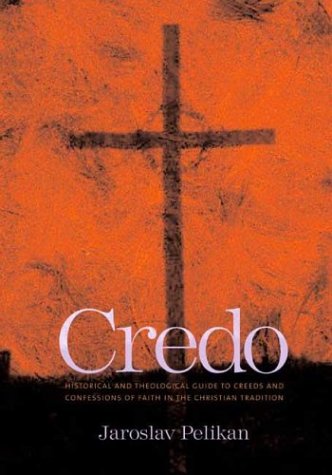


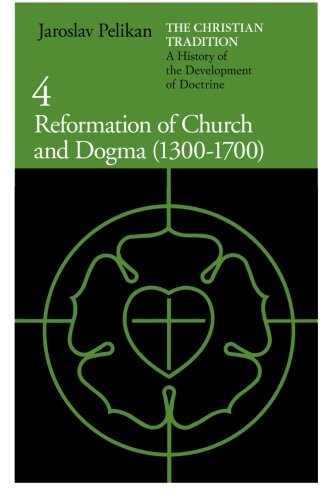



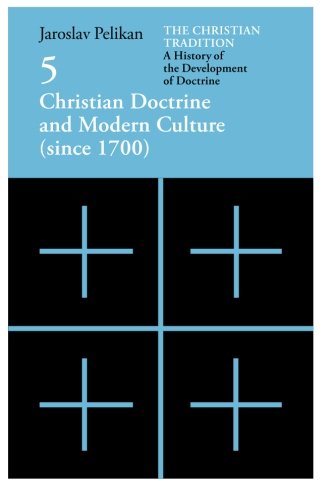

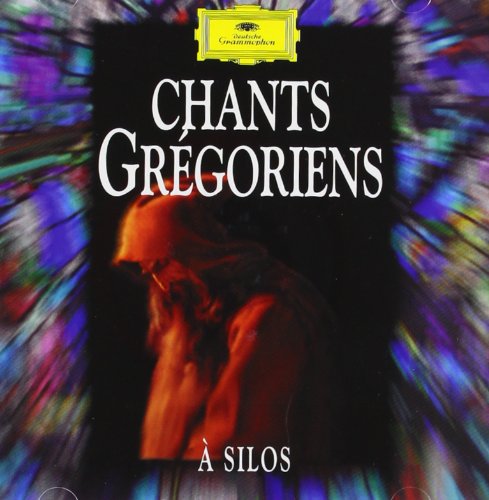



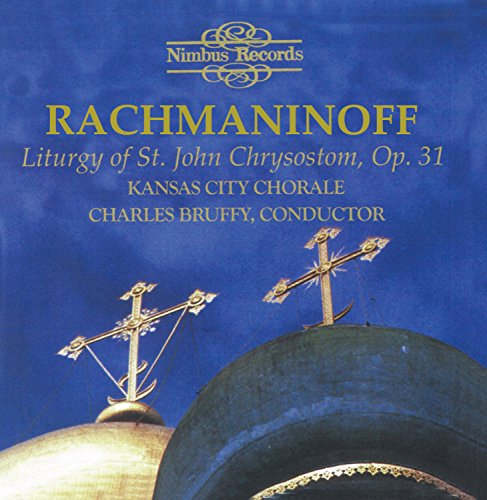


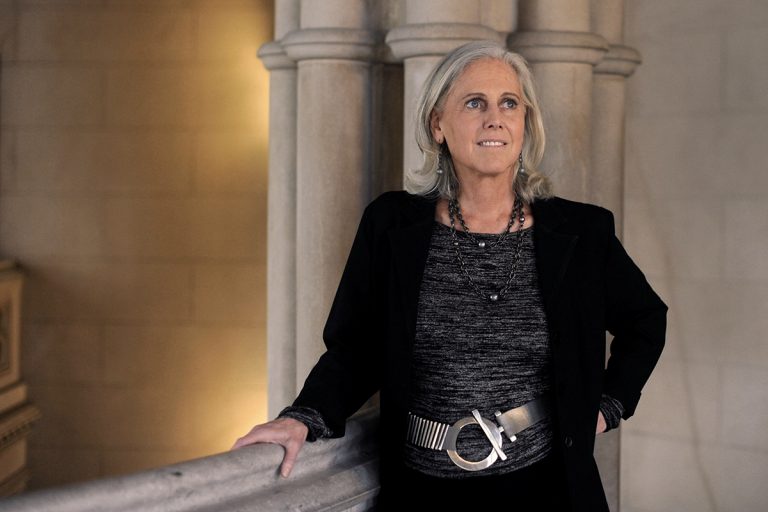
Reflections